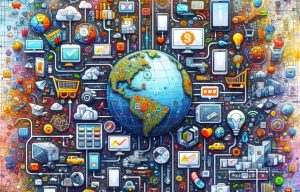iPhone 12: The new iPhone is a shot in the arm for 5G — but conspiracy theories still need debunking
4 min readApple launching a 5G-enabled iPhone makes a lot of sense. Given that all its major rivals have released 5G handsets in the past 18 months, the Californian tech giant was in danger of looking seriously behind the times if it waited much longer to wade into 5G waters. However, Apple’s adoption of 5G is not just significant for iPhone fans clamouring for a new, faster device, but for the industry at large.
The benefits of 5G are well-known by now: significantly faster download speeds, swifter browsing and greater connectivity for smart cities, driverless cars and other major networks.
However, adoption in the UK has been relatively slow, with just 13 per cent of consumers reporting a 5G service on their phone, according to research from analyst Ansys.
This could be down to any number of factors: 5G phones are too expensive, the networks aren’t reliable enough, faster internet isn’t a compelling enough reason to upgrade or the fact shoppers have simply been waiting for a 5G-ready iPhone. But one particularly important consideration is the battering the technology’s reputation has taken since the onset of Covid-19.
Conspiracy theories and lies
While the fifth generation of wireless technology has been commercially available in the UK since May last year, it found itself at the centre of international controversy in April when conspiracy theorists decided to spread untrue claims linking the rollout of the technology to the coronavirus pandemic.

The outlandish theories, despite a complete absence of basis in scientific fact, triggered a wave of arson attacks on mobile masts across the UK during the spring, while telecoms workers were abused in the street and spat at by protesters, causing at least one Openreach engineer to contract Covid-19.
While the rumours lack any credibility, the unease they’ve generated around 5G could be damaging to future adoption, research from analyst CCS Insight suggests, warning that negative publicity, “however baseless” could act as a deterrent if they continue to circulate. Similarly, recent research from Deloitte found that 14 per cent of 4,150 mobile or smartphone owners aged between 16 and 75-years old believed there were health risks associated with 5G, while under half (43 per cent) said they were uncertain. The same percentage said they were confident it did not pose any danger to public health, in line with expert guidance from the World Health Organisation (WHO) and International Commission on Non-Ionising Radiation Protection (ICNIRP).
Cult of Apple
Apple, with its cult-like following, is the only phonemaker with enough clout to convince sceptical shoppers to consider signing up to 5G. Kester Mann, director of consumer and creativity at CCS, likens the new 5G-enabled iPhone as firing the starting gun in the race for mobile providers to sign up new customers, acknowledging that while the threat posed to future adoption by anti-5G claims are real, they’re currently small.
“If these rumours and protests continue, it represents a bit of a threat to the industry that could eventually start to affect people’s enthusiasm to buy new 5G phones,” he tells i. “A lot of these theories aren’t going to put off the real Apple fans who’re willing to spend top dollar on a new handset.
“In some people’s eyes this is the unofficial start for 5G, especially in the UK where there are high numbers of iPhone users,” he explains. “I think many would-be customers will have been holding out for an iPhone that supports 5G and that this is a timely shot in the arm for the technology.”
While the release of a 5G-ready iPhone will deliver a major boost to the standard’s adoption across western Europe and the US where the iPhone is particularly popular, misconceptions around 5G remain. The responsibility lies with the mobile operators to better explain to their customers that there’s nothing linking 5G to coronavirus and, more widely, that there’s no evidence it poses a threat to their health either. Truthfully, the telecoms industry is likely to be furiously crossing its fingers that Apple’s involvement will both kickstart consumer appetite for 5G on a wider scale and minimise the possibility of future conspiracy campaigns.
An industry insider who didn’t want to be named compared the launch of the new handsets as the equivalent of Real Madrid signing Cristiano Ronaldo – while symbolic, its success will largely depend on external factors. “It’s an important statement of intent but to function properly a star signing still needs the other 10 players and wider squad and support staff in place for the team to fulfil its potential,” they say. There’s no doubt the new iPhones will become the flashiest, best-selling 5G-enabled devices, particularly the relatively affordable iPhone 12 mini, triggering a rising-tide effect across the industry.

There is clearly work yet to be done to tackle conspiracy theorists and internet liars taking advantage of vulnerable people to weaponise fears around new technology and the perceived threats they pose.
Apple joining the legions of 5G phone makers had removed the final obstacle preventing the people that want 5G from finally getting it (depending on how good the coverage in your area is, that is), triggered a pricing battle as the networks race to offer the most compelling contract prices and plonked 5G firmly into mainstream consciousness. Other manufacturers may have paved the way to 5G, but, as usual, it looks as though Apple will be the one to reap the rewards.






